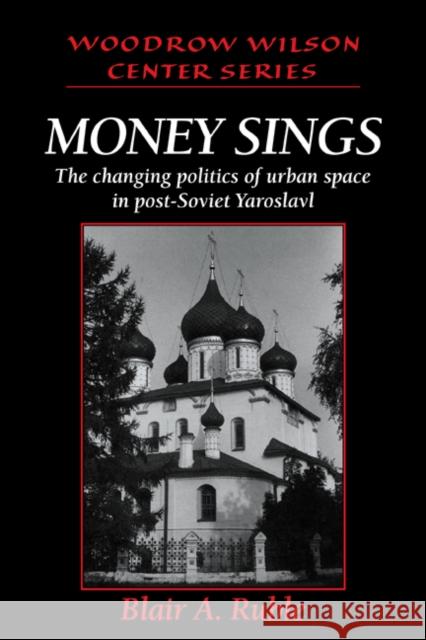Money Sings: The Changing Politics of Urban Space in Post-Soviet Yaroslavl » książka
Money Sings: The Changing Politics of Urban Space in Post-Soviet Yaroslavl
ISBN-13: 9780521026017 / Angielski / Miękka / 2006 / 180 str.
Money Sings: The Changing Politics of Urban Space in Post-Soviet Yaroslavl
ISBN-13: 9780521026017 / Angielski / Miękka / 2006 / 180 str.
(netto: 183,38 VAT: 5%)
Najniższa cena z 30 dni: 125,88
ok. 16-18 dni roboczych.
Darmowa dostawa!
The politics surrounding the use of urban space exposes the interaction of economic, physical, social, and political factors shaping contemporary society. This exposure is especially revealing when focused on a single community during a period of dramatic transformation. Money Sings explores the sweeping reorganization of Russian life during the initial post-Soviet era (August 1991-December 1993) by examining the politics of property in a Russian "Middletown", the historic industrial city of Yaroslavl. Located on the banks of the Volga 150 miles northeast of Moscow, post-Soviet Yaroslavl reveals what can happen to a city when money suddenly takes on meaning. Bureaucratic battles over property, plans for suburbs to be built on collective farms, major court battles, discredited local officials, and environmental disasters add texture to abstract notions about transitions to a market economy and political democracy. The politics of urban space - what a city looks like and how it functions - explodes in Yaroslavl as local officials wrest power from central authorities, and those who control money subvert formal planning procedures that once favored privilege and bureaucratic status. This volume, which details housing privatization, historic preservation, and urban planning, demonstrates important lessons about the bureaucratic and political dynamics of systemic change in post-Soviet Russia, the economic transition to the market, and the importance of economic factors in shaping the contemporary city.











